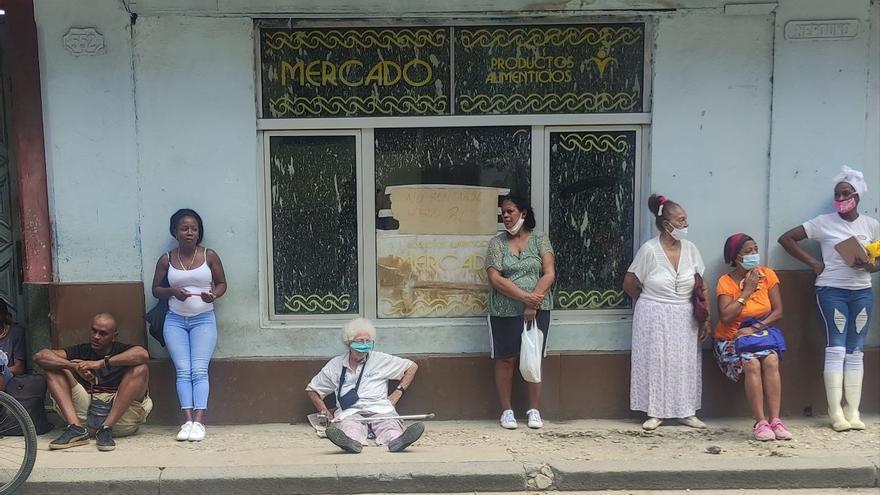
![]() 14ymedio, Havana, 5 June 2023 — The arrival of 21,000 tons of Canadian wheat will allow Cuban bread production to resume. The good times will likely be short-lived, however, because this amount will be only enough for about two weeks.
14ymedio, Havana, 5 June 2023 — The arrival of 21,000 tons of Canadian wheat will allow Cuban bread production to resume. The good times will likely be short-lived, however, because this amount will be only enough for about two weeks.
Osmany Rodriguez Long, director of logistics for the company Food Industry, said on the Cuban television program Buenos Días that the shipment had arrived several days ago, without specifying exactly when, and that flour mills in Havana began processing it on Sunday prior to its shipment to other provinces.
According to websites that monitor maritime traffic, the Irida GS, a ship which sails under the flag of the Marshall Islands and often transports grain, started its journey in Montreal and entered the port of Havana on Sunday.
Rodriguez Long added that on June 11 another ship would deliver 1,200 tons of wheat to Santiago, though it would arrival later than expected. “It took 75 days to pay the charges because the money had to be routed through various banks to get around the blockade,” explained Rodriguez, who insisted that Cuba’s bread shortage is a result of U.S. policy even though food products are exempt from the trade embargo.
“It was impossible to get coverage before because of the persecution to which we’ve been subjected, because of the blockade,” he said. “Cuba has contracts for other wheat deliveries after June 12,” added journalist Lázaro Manuel Alonso, who also announced the arrival of the latest shipments on his Facebook page. These shipments, he said, will allow authorities to guarantee bread will be available in June and July.
Alonso added, “Despite these shipments, food production on Sunday was impacted in several areas, as will be the case on Monday. With flour now being processed in the capital, the situation should be more favorable by Tuesday.
According to the Ciego de Ávila newspaper Invasor, 30% of the province’s inhabitants were without bread and a similar situation is expected tomorrow, Monday, says Yadiel Perez Tellez, a provincial government official.
Several provinces have experienced similar situations, and not just recently. Since April or May, they have had to resort to using different types of flour to guarantee supply.
Last week in Havana, Food Industry announced that bread would be produced and sold using a mixture of 60% wheat flour and 40% semolina.
Other areas, such as the town of Bartholomé Masó in Granma province, are not as lucky. It was announced last week that bread would be available only every other day there and that 15% of the bread’s composition would be corn flour. Officials acknowledged this will, of course, produce a certain change in the texture, color and flavor, but said they were resorting to this option in order to fulfill their production commitments.
To keep up production, bakers in Cienfuegos province have also had to use lower quality flour, something that irritates local residents and was criticized as “an ongoing affront in the production of this vital food source” in the pages of the official press. “The resulting bread has a rough, coarse texture, crumbles to the touch, lacks volume, is dark in color, has a strong, damp odor and tastes acidic from having been fermented too long,” lambasted the news website 5 de Septiembre.
In Sancti Spritus, one of the provinces that have caught the attention of the press, there have been attempts to establish partnerships with the private sector in an effort to improve bread production. But the problem is the same, no matter the system of management: the raw material is not there, and when it is, it does not last long.
____________
COLLABORATE WITH OUR WORK: The 14ymedio team is committed to practicing serious journalism that reflects Cuba’s reality in all its depth. Thank you for joining us on this long journey. We invite you to continue supporting us by becoming a member of 14ymedio now. Together we can continue transforming journalism in Cuba.
